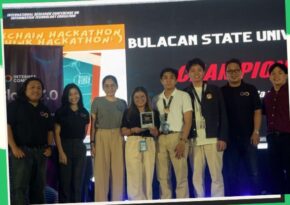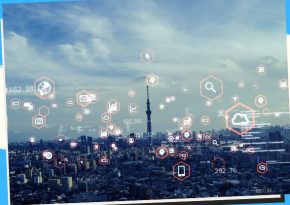
Edge Computing’s Role in Industrial IoT: Unleashing Innovation
Discover the driving force behind innovation in industrial IoT: Uncover how edge computing is reshaping the landscape of connected industries.
Empowering Industry: Edge Computing in the Realm of Industrial IoT 


The Fourth Industrial Revolution has ushered in an era of interconnectedness and data-driven decision-making, transforming industries across the globe. At the heart of this transformation lies the Industrial Internet of Things (IIoT), a network of devices, sensors, and machines that collect and exchange data to optimize operations. To supercharge the potential of IIoT, edge computing emerges as a pivotal technology. This comprehensive article will explore the convergence of edge computing and industrial IoT, unraveling the benefits, use cases, and implications for industries.
Understanding Edge Computing in Industrial IoT
Before diving into the specifics, let’s establish a foundation for both edge computing and industrial IoT:
Edge Computing involves processing data closer to the source, reducing latency, and enabling real-time analysis. This is achieved by bringing computational power to the edge of the network, near where the data is generated.
Industrial Internet of Things (IIoT) refers to the interconnected network of industrial devices, machines, sensors, and systems that communicate and share data to enhance efficiency, productivity, and decision-making in various industries.
The Synergy of Edge Computing and Industrial IoT
Edge computing and IIoT are a match made in industrial heaven. The combination of these two technologies unlocks a new dimension of capabilities that can revolutionize industries:
1. Real-Time Insights
In industrial settings, timely insights are critical. Edge computing processes data immediately at the edge, enabling rapid analysis and decision-making. This is invaluable in scenarios where split-second actions can prevent equipment failures, optimize processes, and enhance safety.
2. Reduced Latency
Latency—the delay between data generation and analysis—can be detrimental in industrial operations. Edge computing minimizes latency by analyzing data locally, ensuring quick responses and actions are taken in real-time.
3. Bandwidth Optimization
Industrial operations generate massive volumes of data. Sending all this data to centralized servers can strain network bandwidth. Edge computing optimizes bandwidth usage by transmitting only relevant, preprocessed data, alleviating network congestion.
4. Offline Operation
In many industrial environments, network connectivity may be intermittent. Edge computing allows devices to function autonomously even when disconnected from central servers, ensuring continuous operation.
5. Enhanced Security
Industrial operations demand robust security. Edge computing minimizes the need to transmit sensitive data over networks, reducing exposure to potential cyber threats.
6. Scalability
Industries are dynamic and constantly evolving. Edge computing’s distributed architecture allows for seamless scalability, accommodating the addition of new devices and systems without overwhelming centralized data centers.
Edge Computing Use Cases in Industrial IoT
The synergy between edge computing and industrial IoT manifests in a myriad of use cases across industries:
1. Predictive Maintenance
Edge computing enables predictive maintenance by analyzing real-time sensor data from machinery. Detecting anomalies and patterns predicts when equipment might fail, allowing maintenance teams to intervene proactively.
2. Quality Control
Manufacturing processes demand precision. Edge devices can monitor production lines, instantly identifying defects or deviations from quality standards. Immediate alerts ensure that issues are rectified promptly.
3. Energy Management
Energy efficiency is a top priority for industries. Edge computing analyzes energy consumption data in real time, optimizing usage and identifying opportunities for conservation.
4. Asset Tracking
In large industrial facilities, tracking assets can be challenging. Edge devices equipped with GPS and RFID technology provide accurate real-time tracking of assets, enhancing inventory management and reducing loss.
5. Supply Chain Optimization
Edge computing facilitates real-time tracking of inventory and shipments, ensuring that supply chains are optimized and disruptions are minimized.
6. Environmental Monitoring
Industries must comply with environmental regulations. Edge devices monitor emissions, air quality, and other environmental factors, generating instant alerts if levels exceed permissible limits.
7. Remote Monitoring and Control
Edge computing enables remote monitoring and control of industrial processes. Operators can analyze data and make informed decisions without needing physical presence on-site.
8. Hazard Detection
Edge devices can detect anomalies in real-time, triggering alarms and initiating emergency protocols in industries with potential safety hazards, such as chemical plants.
9. Smart Grids
Edge computing enhances the functionality of smart grids by analyzing energy consumption patterns, optimizing energy distribution, and enabling real-time responses to fluctuations.
10. Agriculture and Precision Farming
Even in agriculture, edge computing plays a role. Field sensors collect data on soil moisture, weather conditions, and crop health. Edge computing processes this data to enable precise irrigation and efficient crop management.
Challenges and Considerations
While the benefits of edge computing in industrial IoT are substantial, several challenges must be addressed:
1. Data Security and Privacy
Protecting sensitive industrial data from cyber threats requires robust security measures and encryption protocols.
2. Data Integration
Integrating data from diverse sources and legacy systems can be complex, requiring careful planning and compatibility considerations.
3. Scalability
Managing a growing number of edge devices across multiple locations can be challenging as industrial IoT deployments expand.
4. Maintenance and Updates
Edge devices require regular maintenance and updates. Managing these processes efficiently to avoid disruptions is crucial.
5. Skill Set Requirements
Implementing and managing edge computing solutions demands specialized technical skills that may not be readily available in all industrial settings.
Top 10 Best Resources About Edge Computing in the Industrial IoT
1. Unveiling the Nuts and Bolts
Edge Computing for Industrial IoT: A Practical Guide by Dell Technologies
Dive into the technical intricacies of hardware, software, security, and implementation considerations.
2. Visualizing the Impact
5 Ways Edge Computing is Transforming Industrial IoT (Infographic) by GE Digital
https://www.ge.com/research/technology-domains/edge-computing
Witness the revolution through five key areas predictive maintenance and optimized resource allocation.
3. Real-World Applications
10 Examples of Edge Computing in Industrial IoT by IoT Analytics
https://iot-analytics.com/iot-edge-computing-what-it-is-and-how-it-is-becoming-more-intelligent/
Explore practical uses across diverse industries, from manufacturing to healthcare.
4. Unlocking Economic Potential
The Edge Computing Opportunity in Industrial IoT by McKinsey & Company
Understand the immense potential for increased productivity and reduced downtime.
5. A Glimpse into the Future
The Future of Edge Computing in Industrial IoT by Forbes
Discover new trends and technologies shaping the future of industrial operations.
6. Learning Through Video
Edge Computing and Industrial IoT: 5 Use Cases (Video) by Intel
https://m.youtube.com/watch?v=y0UhUEU22gQ
Watch engaging visuals showcasing practical applications, like real-time quality control.
7. Navigating the Vendor Landscape
Edge Computing for Industrial IoT: A Vendor Landscape by Gartner
https://www.gartner.com/en/documents/4004744
Compare different offerings from major vendors like Microsoft and Siemens.
8. Building a Solid Foundation
Industrial Edge: Everything You Need to Know by Cisco
https://www.cisco.com/c/en/us/solutions/computing/what-is-edge-computing.html
Gain a comprehensive understanding of benefits, challenges, and Cisco’s role in the IIoT.
9. Connecting with Professionals
Edge Computing Summit
https://www.edgecomputingworld.com/program-at-a-glance-2/
Stay updated and network with professionals, and gain insights from presentations and demos.
10. Engaging with the Community
Industrial IoT Community Website
Share information, access case studies, and learn from expert insights.
Remember, this is just your launchpad! Keep exploring, learning, and innovating as you unlock the potential of edge computing in the Industrial IoT.
Closing Thoughts
Edge computing’s integration into industrial IoT is poised to revolutionize how industries operate, optimize resources, and make decisions. As technology advances, the partnership between edge computing and industrial IoT will drive innovation, enhance efficiency, and reshape the landscape of industrial operations. By embracing the challenges and leveraging the transformative potential, industries can pave the way for a smarter, more connected future.
Key Phrases










Best Hashtags
- #EdgeInnovation
- #IoTRevolution
- #IndustrialInnovation
- #EmpowerWithEdge
- #CatalystOfChange
- #FutureTech
- #InnovateAtTheEdge
- #TechFrontiers
- #IoTTransformation
- #EdgeTomorrow
Save/Share this story with QR CODE
Disclaimer
This article is for informational purposes only and does not constitute endorsement of any specific technologies or methodologies and financial advice or endorsement of any specific products or services.
 Need to get in touch?
Need to get in touch?

We appreciate your reading. 
1.) 

Your DONATION will be used to fund and maintain NEXTGENDAY.com
Subscribers in the Philippines can make donations to mobile number 0917 906 3081, thru GCash.
3.) 
4.) 
AFFILIATE PARTNERS

World Class Nutritional Supplements - Buy Highest Quality Products, Purest Most Healthy Ingredients, Direct to your Door! Up to 90% OFF.
Join LiveGood Today - A company created to satisfy the world's most demanding leaders and entrepreneurs, with the best compensation plan today.

 Business, Finance & Technology
Business, Finance & Technology











